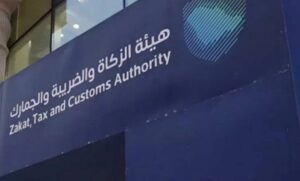Value Added Tax in Saudi Arabia plays a vital role in supporting public services, strengthening the national economy, and promoting responsible citizenship. Like other modern economies, the Kingdom has adopted VAT as a fundamental element of its fiscal policy. It contributes directly to the quality of services citizens enjoy daily—such as education, healthcare, and infrastructure.
This article presents a real-life scenario of an aspiring entrepreneur, Fahad, who seeks to understand how VAT applies to his new business. With the help of his friend Mohammed, he navigates the complex world of Value Added Tax in Saudi Arabia and discovers how it impacts various sectors.
Fahad Takes the Leap: Starting a Business in Saudi Arabia
Fahad, a passionate and ambitious young Saudi, decided to start his own business. While he was confident in his vision, he realized he lacked the necessary knowledge about taxation—particularly Value Added Tax in Saudi Arabia. On the advice of friends, he reached out to Mohammed, a well-informed acquaintance known for his deep understanding of local economic policies.
What Is VAT? Understanding the Basics
Definition of Value Added Tax
Mohammed began by explaining that Value Added Tax in Saudi Arabia is a consumption tax applied at every stage of the supply chain—from production to the point of sale. It ensures that each party involved in adding value to a product pays a fair share of tax.
Types of VAT Categories
-
Standard Rated Products
These are goods and services taxed at the standard VAT rate. Examples include general consumer goods, private healthcare, and local transportation. -
Exempt Products and Services
These do not incur VAT and include services like public education and government-provided healthcare. -
Zero-Rated or Out-of-Scope Items
Items such as exported goods fall under this category and are not subject to VAT.
Examples of VAT Application
To illustrate the different categories, Mohammed shared practical examples:
-
Taxable: Groceries, local transport, private clinics
-
Exempt: Government schools, public hospitals
-
Zero-Rated: Exports, salaried employment activities
VAT Registration Threshold in Saudi Arabia
Fahad was concerned that his business might be taxed immediately. Mohammed reassured him by explaining the VAT registration threshold. Any business earning more than SAR 375,000 in taxable revenue over 12 months is required to register for Value Added Tax in Saudi Arabia. Some sectors—like financial services or certain real estate transactions—may be exempt from registration.
Understanding the VAT ID in Saudi Arabia
Mohammed then explained that each registered business receives a VAT Identification Number (VAT ID)—a unique code used to verify a company’s legitimacy in tax-related matters. This number protects consumers and ensures transparent transactions.
To obtain a VAT ID, businesses must:
-
Apply for VAT registration
-
Provide all necessary business information
-
Await confirmation and issuance of the VAT number
Electronic Invoicing (E-Invoicing) in Saudi Arabia
What Is an E-Invoice?
In the VAT system, all taxable transactions must be documented using electronic invoices.
Types of E-Invoices
-
Standard Tax Invoice – For general business dealings, includes full details of goods/services and tax amounts.
-
Simplified Invoice – Used for small-scale transactions, containing minimal information like names and totals.
Can VAT Be Refunded?
Fahad was surprised to learn that some businesses could claim refunds. Mohammed confirmed that if a business pays more VAT than it collects, it can request a refund through the ZATCA portal. The process involves:
-
Logging into your account
-
Navigating to the VAT section
-
Choosing “Refund Payments”
-
Filling out and submitting the form
This feature makes Value Added Tax in Saudi Arabia more flexible and fairer for businesses.
Real Estate Transactions and VAT
What Is the Real Estate Transaction Tax?
Mohammed introduced another tax: the Real Estate Transaction Tax (RETT). At a flat rate of 5%, it applies to the sale or transfer of any property, including land and buildings. Some cases, such as inheritance and long-term lease contracts (50+ years), are exempt.
Can It Be Refunded Too?
Yes, similar to VAT refunds, businesses or individuals who qualify can request reimbursement for overpaid RETT through the ZATCA platform.
Is My Home Taxed? First Residence Exemption
Before leaving, Fahad raised a final concern: “Do I need to pay VAT on my own house?”
Mohammed clarified that under Royal Decree (A/86), the government bears VAT on the first residential property purchased by Saudi citizens, for a value up to SAR 850,000. This initiative aims to make housing more affordable and encourage homeownership.
Conclusion: VAT as a Tool for National Progress
By the end of their discussion, Fahad was no longer anxious. He realized that Value Added Tax in Saudi Arabia isn’t just about obligations—it’s also about benefits, sustainability, and national development. Thanks to clear regulations and supportive policies like refunds and exemptions, businesses can thrive while contributing to the Kingdom’s Vision 2030 goals.
Read also:
Withholding Tax in Saudi Arabia and How to Calculate It
Accounting Fraud and How to Manipulate Financial Statements
Evaluation of Economic Enterprises: Its Purpose and How the Evaluation is Done
Important Accounting Terms and the Expertise Required by Accountants
International Financial Reporting Standard IFRS 15: Revenue from Contracts with Customers

